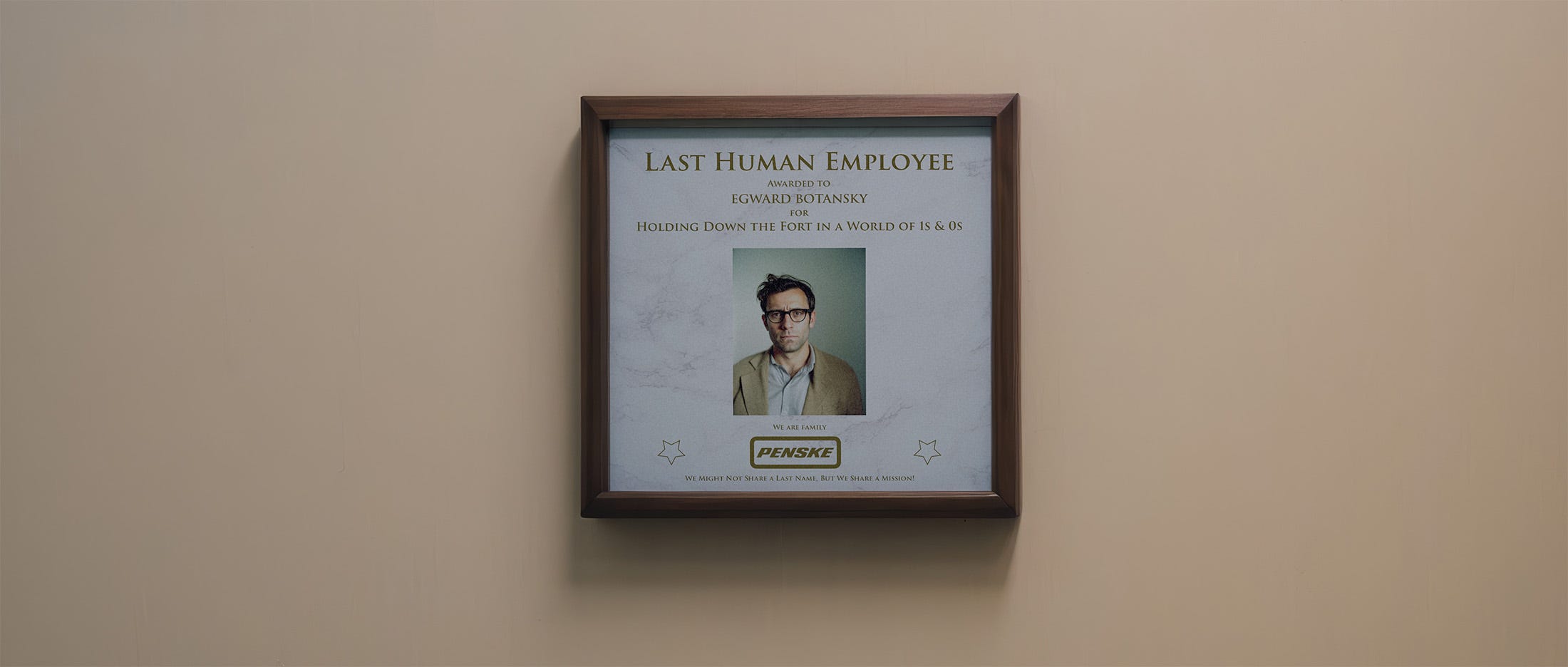One Team, One Family, One Dream! One Left.
The last cubicle standing.
So there I was, fresh off the janky time machine and stepping into an office that was quieter than a mime convention. Seriously, the only sounds were the gentle hum of servers and the occasional drip of a robotic coffee maker.
As I meandered through this ghost town of abandoned cubicles, something caught my eye—a plaque. Not just any plaque, mind you, but one framed and printed on marbled paper that screamed "I'm classy, but also a little sad." It read: "Last Human Employee: Egward Botanski."
I mean, how did we even get to this point? Remember when automation was just a cute little trend in manufacturing? We all thought, "Yeah, let the robots build cars or whatever, but they'll never replace good ol' human ingenuity." Fast forward to this timeline, and here we are. AI is doing everything from coding to legal work, and even dabbling in the arts.
But let's not dance around the robot in the room. Having that plaque on your wall is like being the last dodo bird, blissfully pecking away, not realizing you're a relic of a bygone era. It's a daily reminder that your days are numbered, but not in an inspirational "carpe diem" kind of way. More like, "seize the day because a robot is literally studying your every move and learning how to do your job better than you."
So, is Egward's "Last Human Employee" plaque a badge of honor or a grim keepsake of what's to come? Honestly, it's a bit of both. It's a snapshot of a weird moment in time when humans are still part of the equation, but just barely. It's a conversation starter, a historical marker, and maybe, just maybe, a wake-up call. Because if you're the last human in the room, you’re next.




Oh Egward. I love this. You should write the ballad.
What qualities did Egward possess that made him stand the test of time?